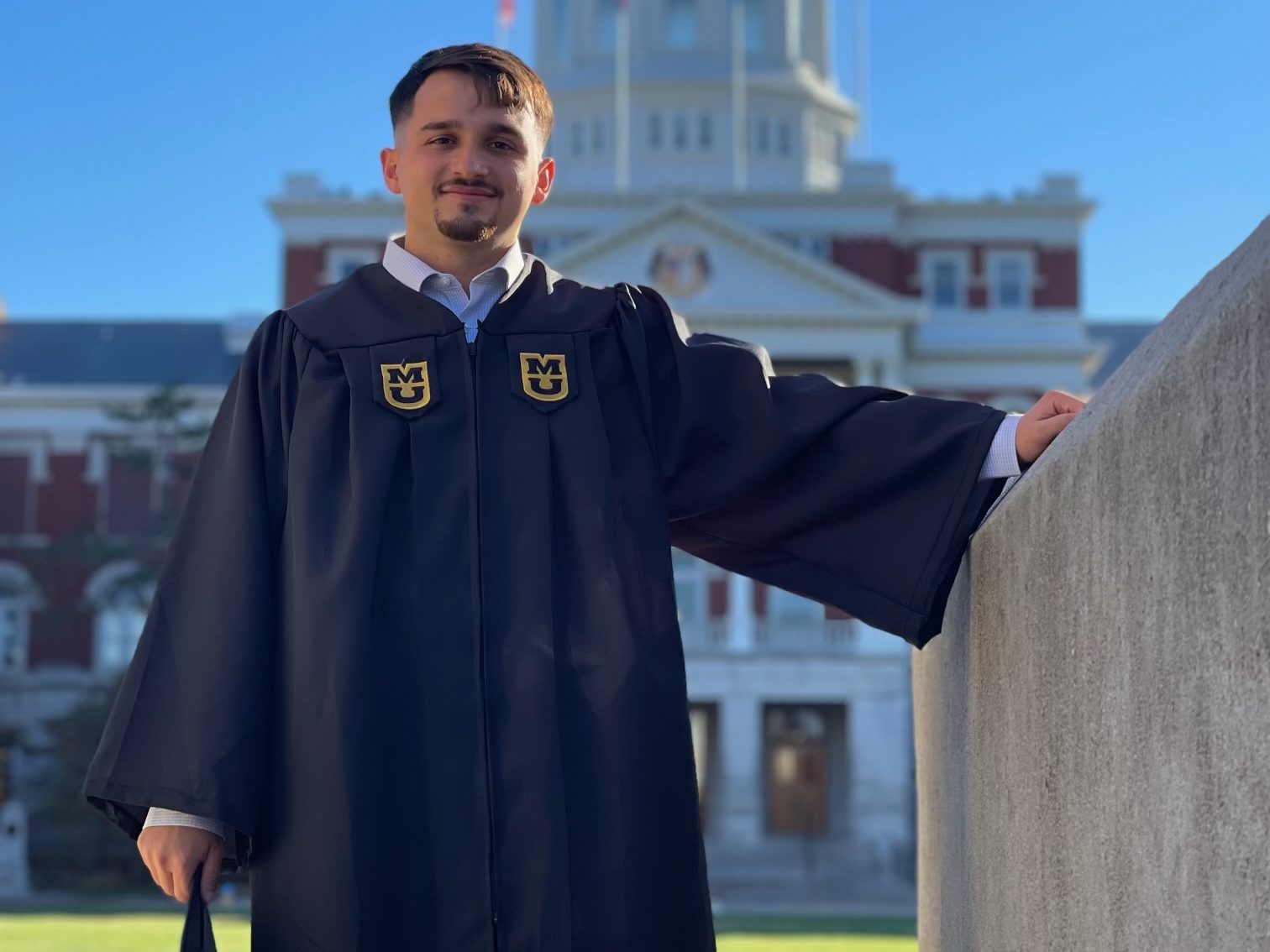Published on
Updated on

Obtaining a college education has always been very important to Sergio Pico-Vazquez, a graduating senior studying information technology within the College of Engineering.
“My parents received their bachelor’s and master’s degrees and that had a huge influence on me,” he said. “I’ve seen how successful they’ve been, and I wanted to follow in their footsteps.”
Pico-Vazquez came to Columbia, Missouri, at the age of 14 from San Juan, Puerto Rico.
His roots in Columbia were established by his father when the elder Pico-Vazquez completed studies at the University of Missouri School of Law. While Pico-Vazquez found comfort in his father’s familiarity with the Columbia community, he was uncertain about the move as he “didn’t know a lot of people.”
Once Pico-Vazquez got involved with Men of Color, Honor and Ambition (MOCHA) in high school, through Columbia Public Schools, he knew he wanted to be involved in the collegiate program, a one-year initiative for undergraduate males at Mizzou.
Read on for a Q & A with Pico-Vazquez about his experience in MOCHA.
Can you tell me about your experience in MOCHA?
My experience with MOCHA has been very memorable. I learned about MOCHA in high school. I went to the MAC Summer Honors Academy at Columbia College through Rockbridge High School my first year in Columbia. As part of that program, there was a section on MOCHA. It was the best thing I did in high school. I gained skills that helped me succeed, especially socially, when it came to getting to know other people. I stayed in contact with most of the guy‘s throughout high school and I still see them around campus.
Why did you want to get involved with MOCHA?
In high school, MOCHA was about getting to know more people. In college, I got involved mainly because I saw the effect it had on me in high school, and I knew it would be more advanced. I encouraged some of my friends to join MOCHA with me and we were able to learn a ton. In high school, MOCHA focused on training us how to meet new people and start conversations. At Mizzou, the program focused on how to use that conversation that you started and grow from there.
What impact has MOCHA had on you?
It has instilled in me confidence and leadership skills. Through the Dale Carnegie Training we completed, I gained the skills to meet people and engage in a conversation for longer periods of time. Jennifer Brown, director of access and outreach initiatives, and Velma Buckner, student support and program engagement manager, made me feel comfortable in MOCHA. When I first came to Columbia, I felt like I different than everyone. They helped me grow into believing that every other person in the program wanted to get to know me. I felt very welcomed and part of the community.
How does MOCHA promote excellence?
You can see it in the alumni that graduate from the program. They are more outgoing and are brighter when they enter a room. Students start off shy, but once they have completed the program, they gain the confidence to talk to anyone – that’s excellence.
What’s next for you following graduation?
I plan to obtain my Masters in cybersecurity and computer science at the University of Missouri St. Louis.